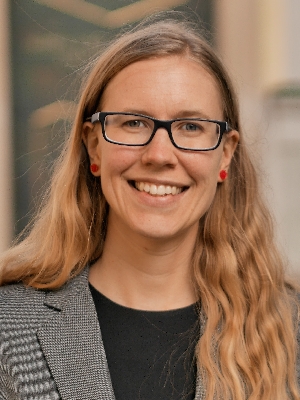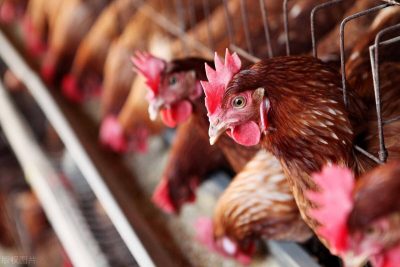
Edited by Jiaxin Shi & Jiangxuan Zhuge, Class of 2025
Chickens, viruses, and politics… Blizzard as the combination may be, it is exactly what we have right now.
For centuries, live poultry has been a regular in the local markets of China. However, given the potential threat to public health, health experts have proposed to better regulate or to stop the selling of live poultry, which in reality is easier said than done.
Why is this difficult? What does this imply in terms of policymaking and implementation? As we congratulate Dr. Annemieke van den Dool on the publication of her paper, The multiple streams frameworks in a nondemocracy: The infeasibility of a national ban on live poultry sales in China in the Policy Studies Journal, we could not help but ponder these questions. In this interview, the CSCC was honored to sit down with Professor van den Dool to dig a little further into the recently published paper, as well as her research and teaching in general.
First of all, thank you for taking the time to answer our questions! Can you tell us a little bit about your research and the courses you teach at DKU?
Thank you for the opportunity to discuss my research!
My research focuses on policymaking and implementation in China, especially in the areas of health and environment. Broadly speaking, I try to understand why government policies in China do or do not change. I also analyze the content and design of government policies. Topics that I study include antimicrobial resistance, health reform, epidemic outbreaks, food safety scandals, crisis management, natural disasters, soil pollution, and environmental accidents. In my research projects, I use document analysis, interviews, and surveys.
At DKU, I have taught a variety of courses, but all of them can be linked to my research in one way or another.
In the public policy tracks, I teach PUBPOL 101: Introduction to Policy Analysis. In this course, students learn how to identify and describe societal problems, identify and develop solutions, and make policy recommendations. I also teach PUBPOL 301: Political Analysis for Public Policy. In this course, students learn how problems and solutions gain attention from policymakers, how ideas turn into policy, and how these policies are subsequently implemented and evaluated.
I am also teaching two public policy electives. PUBPOL 209: The Politics of Environmental Crises is a 2-credit course that focuses on how policymakers prepare for and respond to environmental crises. The other elective that I teach, PUBPOL 317, focuses on plastic pollution.
Again, congratulations on publishing your paper in Policy Studies Journal! You mentioned that the multiple streams framework (MSF) is popular among policy scholars, and you research also applies this framework. Could you briefly introduce it to us?
Thank you! The Policy Studies Journal is a top journal for policy process theory, which is the subfield in which my research is situated. Within this subfield, the multiple streams framework is a popular framework.
In a nutshell, the framework assumes that the likelihood that public policy is adopted increases if there is a problem, a feasible solution, political will to address the problem, and someone (for example a bureaucrat) who connects problem, solution, and political will. The likelihood of this to happen is larger if there is a big societal event that attracts attention to the problem, for example an epidemic outbreak, or if there is a change within the bureaucracy, for example after elections or after government reforms.
As a student majoring in political science, I wonder if you can tell us more background information, like what has inspired you to choose China and its national ban on live poultry sales as a research object?
In my subfield of policy process theory, relatively little attention is being paid to China. There are many reasons why we need to better understand policymaking in China. One of them is that a large share of the world population lives in China. Public policy affects every part of our daily lives. Hence it is important to how public policy is developed and how and why there are changes (or not) over time.
Like any country in the world, China has lots of interesting problems that one could study. In this project, I choose to examine why China has not yet adopted a national level ban on the sales of live poultry (e.g., chickens) on markets.

Within China’s food culture, there is a preference for freshly slaughtered poultry (rather than e.g., frozen). Unfortunately, studies have shown that live poultry sales comes with public health risks, in particular the spread of diseases, especially avian influenza. Therefore, scientists and policymakers in China have proposed to forbid the sales of live poultry on markets. While this may sound like a “rational” approach to reducing epidemic risk, in practice it is not easy to adopt such a policy at the national level. In the article, I argue that although there is a problem (i.e., health risks due to live poultry sales), a solution (i.e., banning live poultry sales), political support from high-level policymakers in China, and a series of epidemic outbreaks directly related to live poultry sales, there is no national level ban on live poultry sales in China, because such a national-level ban is technically infeasible, financially inviable, and inconsistent with existing norms and values.
How important do you think it is to diversify the field of research in today’s globalized world? What directions do you hope to take with your research in the future?
Diversity in research is extremely important for many reasons. One of them is that diversity can lead to new insights. Research on policymaking in China not only provides a better understanding of how and why public policy changes in this context, but also helps us to better understand and to test existing policy process theories and frameworks, most of which were developed in the USA and Europe.
I am currently working on other projects that involve the same theoretical framework, but applied to other issues, including soil pollution and infectious diseases. In the future, I want to focus more on comparing China to similar countries. I have started to collaborate with a scholar specializing in Russia. Together we are working on a project that systematically analyses how existing policy process theories can be used beyond the USA and Europe.
We know that you have a few ongoing research projects. What roles do students play in those projects? What they might learn or benefit from being in these roles?
I involve DKU undergraduate students in almost all of my research projects. The CSCC has provided generous support for several of these projects.
In my project on live poultry sales in China, four students have contributed by collecting and analyzing policy documents and journal articles. For example, one of the students in my research team has identified all policy solutions that have been mentioned in peer-reviewed journal articles on live poultry sales. Students acquire important research skills in this process, while also gaining a deeper understanding of existing public policy theories and policymaking in China. They learn how to collect and organize data (in this case journal articles and policy documents) and how to conduct qualitative content analysis. The students who worked on the poultry project have done important work and delivered high quality output. Aside from improving their skills, their experience in this project strengthens their application packages for graduate school.
In general, I am very proud of our undergraduate students at DKU as they are truly capable of making impactful contributions to faculty research and I am very pleased with grants provided by the CSCC to support faculty and student research.


